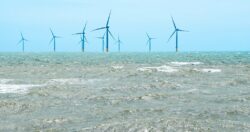Dogger Bank C substation heads offshore

The final electrical substation for Dogger Bank C, the world’s largest offshore wind farm, has been floated out to sea for installation.

The final electrical substation for Dogger Bank C, the world’s largest offshore wind farm, has been floated out to sea for installation.

The majority of the world’s rechargeable batteries are now made using lithium-ion. Most rely on a combination of different rare earth metals such as cobalt or nickel for their electrodes. But around the world, teams of researchers are looking for alternative – and more sustainable – materia...

Dr Anupama Sen, Head of Policy Engagement, Professor Sam Fankhauser, Professor of Climate Economics and Policy, both from the The Smith School of Enterprise & Environment, and Cassandra Etter-Wenzel, DPhil Candidate in Energy Policy from the Environmental Change Institute write in The Convers...

A first-of-its-kind simulation platform that harnesses live environmental data could help fast track the deployment of robotics and autonomous systems for offshore wind.

UK battery recycling firm Altilium has secured £1m from the Advanced Propulsion Centre to develop a low carbon transport solution for end-of-life EV batteries.

The University’s Be Energy Friendly campaign is back and is focused on energy efficiency over the summer, with practical tips for staying cool and reducing energy use to help meet the University’s environmental goals.

Dr Roosa Lambin, Dr Nicola Ranger, and Jasper Verschuur of the Oxford Martin Systemic Resilience Initiative argue that the UK must rethink climate resilience through a global lens. In their latest blog, they highlight how transnational climate risks, such as global food and energy disruptions, po...

The UK is now more than halfway (50.4%) to achieving a net zero carbon economy, which means it has reduced its national emissions significantly compared to 1990.

The funding will be used to enhance the UK’s energy security and support renewable energy transmission.